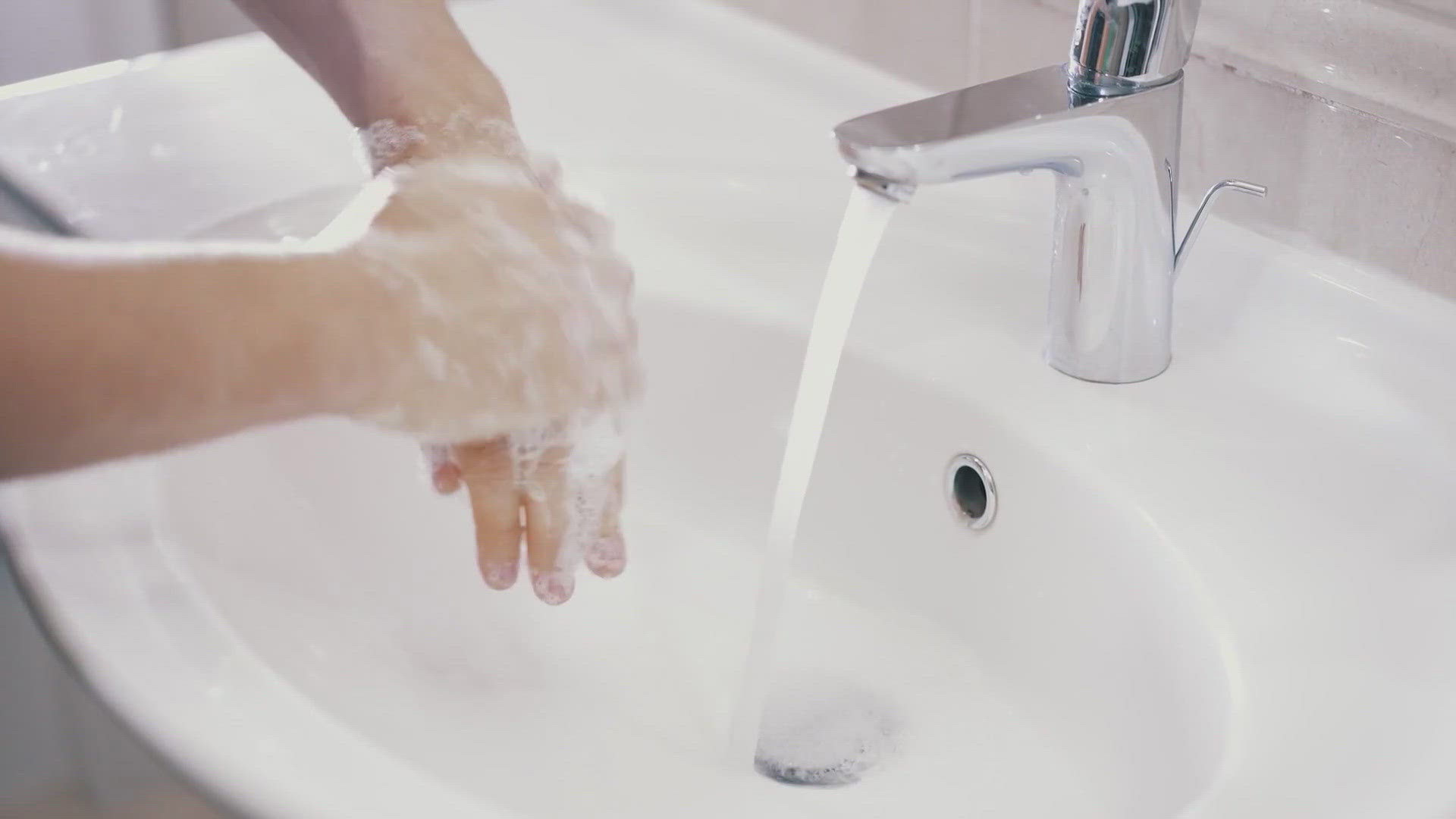SAN ANTONIO — It's a dirty topic but let's come clean!
National Handwashing Day may have been last week, but as KENS 5's Jeremy Baker reports in today's Healthy SA, you need to practice good hand hygiene year-round to avoid getting illnesses.
It's kind of gross but a paper clip represents one gram of fecal matter, which contains more than a trillion germs. That's just one reason why washing it away is so important. Dr. Jason Bowling, an infectious disease specialist with University Health and Professor of Infectious Diseases with UT Health San Antonio told us, "If you're not doing hand hygiene, every surface you touch, you are potentially contaminating so that somebody else, particularly in your household, could touch it and become infected themselves."
The CDC tells us people often get sick when they make contact with germs from feces on their hands. Handwashing helps battle the rise in antibiotic resistance. And it comes down to something we all repeated often in the pandemic: scrubbing your hands for at least 20 seconds removes more germs from hands. And make sure you use running water because standing water like water in a bucket could be contaminated.
"Viruses maybe come off into that pool of water and the potentially recirculate and get right back on your hands again by using the running water as you're rinsing them off, you're not re-contaminating your hands," Dr. Bowling added.
The biggest focus should be on kids washing their hands. Close to two million children under the age of five die each year from diarrheal diseases and pneumonia, the top two killers of young children around the world. Handwashing with soap could protect about one out of every three young children who get sick with diarrhea.
"The top ways that people get GI infections where they get nausea, vomiting, diarrhea, belly pains is by touching that virus or bacteria and then auto inoculating or basically infecting themselves by touching mucous membranes or contaminated food as they're eating it," Dr. Bowling said.
Click here for a video produced by University Health that shows just how easily germs can spread.

